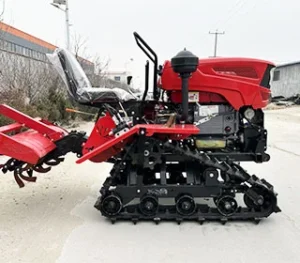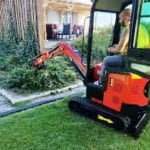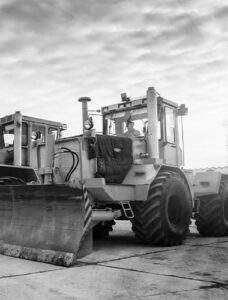Benefits of Investing in a Tractor de Agricultura for Small-Scale Farms
Introduction
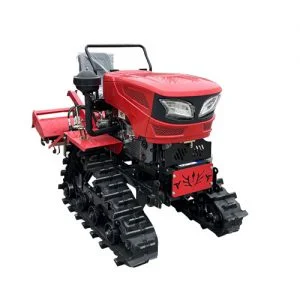
Investing in agricultural tractors, particularly for small-scale farms, represents a pivotal step towards enhancing operational efficiency and productivity. This blog delves into the multifaceted benefits of integrating a tractor de agricultura into small farm operations, exploring its impact on efficiency, financial gains, sustainability, and more.
Importance of Mechanization in Agriculture
Mechanization plays a crucial role in modernizing agricultural practices, especially for small-scale farms. By mechanizing tasks that were traditionally labor-intensive, farms can achieve significant improvements in efficiency and productivity.
Enhancing Efficiency and Productivity
One of the primary benefits of using a tractor de agricultura is the substantial increase in operational efficiency. Tasks such as land preparation, planting, and harvesting can be completed in a fraction of the time compared to manual methods. This efficiency allows farmers to adhere to optimal planting and harvesting schedules, thereby maximizing crop yields.
Moreover, the precision offered by modern agricultural machinery ensures accurate seed placement, uniform application of fertilizers, and efficient weed and pest control. These factors collectively contribute to improved crop quality and higher yields, which are critical for the economic sustainability of small-scale farms.
Improving Crop Yield and Quality
The precise nature of tractor operations ensures that crops receive adequate care and attention throughout their growth cycle. This includes timely irrigation and effective management of soil nutrients, which are crucial for maximizing crop yields. Additionally, mechanized farming reduces the risk of crop damage during cultivation, thereby enhancing overall crop quality and marketability.
Financial Benefits of Tractor Investment
While the initial investment in a tractor de agricultura may seem substantial, the long-term financial benefits far outweigh the costs, particularly for small-scale farms.
Cost Savings Over Time
Despite the upfront investment, mechanization significantly reduces labor costs over time. The efficiency gains mean that fewer labor hours are required for farm operations, allowing farmers to allocate resources more strategically. Additionally, mechanized farming minimizes the risk of labor shortages during critical periods such as planting and harvesting seasons.
Furthermore, the durability and longevity of modern tractors ensure that they provide reliable service over many years, amortizing the initial investment and reducing the overall cost per hectare of cultivated land.
Access to Agricultural Subsidies and Loans
Many governments offer subsidies and financial incentives to promote farm mechanization. These subsidies can offset a portion of the initial purchase cost or provide favorable financing terms for agricultural equipment. Accessing these subsidies can significantly reduce the financial burden on small-scale farmers and facilitate the adoption of modern farming technologies.
Environmental and Sustainability Impact
In addition to economic benefits, tractor de agricultura also contributes to sustainable farming practices and environmental stewardship.
Reduced Environmental Footprint
Modern tractors are designed to be more fuel-efficient and emit fewer pollutants compared to older models or traditional farming methods. This reduction in fuel consumption not only lowers operating costs but also minimizes the carbon footprint associated with agricultural activities. Moreover, efficient tractor operations help prevent soil erosion and reduce soil compaction, preserving the long-term fertility and health of agricultural lands.
Sustainable Farming Practices
By integrating mechanization with sustainable farming practices, such as precision agriculture and organic farming methods, farmers can optimize resource use and minimize environmental impact. Tractors equipped with advanced technologies enable precise application of inputs, such as fertilizers and pesticides, thereby reducing waste and enhancing the ecological balance of agricultural ecosystems.
Choosing the Right Tractor for Your Farm
Selecting the appropriate tractor de agricultura involves careful consideration of farm size, terrain characteristics, and operational requirements.
Assessing Farm Size and Terrain
The horsepower and size of the tractor should be matched to the scale and topography of the farm. Smaller farms with varied terrain may benefit from compact tractors that offer maneuverability in tight spaces, while larger farms may require high-horsepower tractors capable of handling heavy-duty tasks such as plowing and harvesting.
Evaluating Equipment Features
When choosing a tractor, farmers should consider the versatility and compatibility of attachments. Modern tractors offer a wide range of implements and attachments, such as plows, seeders, and sprayers, which can be tailored to specific farm operations. Additionally, ease of maintenance and availability of servicing support are essential factors to ensure uninterrupted farm operations.
Training and Skill Development
Effective utilization of a tractor de agricultura requires proper training and ongoing skill development for farm operators.
Operator Training and Safety
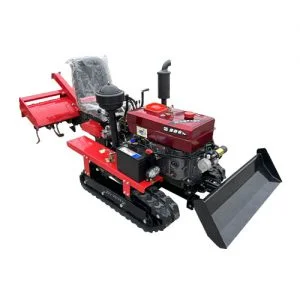
Proper training in tractor operation and safety protocols is crucial to prevent accidents and ensure the longevity of equipment. Training programs should cover topics such as tractor maintenance, safe handling of implements, and emergency procedures. By investing in operator training, farmers can enhance operational efficiency and minimize the risk of equipment damage or personal injury.
Skill Development Opportunities
Farmers can benefit from ongoing education and skill development opportunities that focus on the latest advancements in agricultural technology. Training programs offered by equipment manufacturers, agricultural universities, and extension services provide valuable insights into optimizing tractor performance and adopting innovative farming practices.
Conclusion
Investing in a tractor de agricultura represents a transformative opportunity for small-scale farms to enhance efficiency, improve productivity, and promote sustainable agricultural practices. By carefully evaluating farm needs, financial considerations, and environmental impacts, farmers can make informed decisions that contribute to the long-term success and viability of their operations.
FAQ
Q:What are the initial costs involved in purchasing a tractor de agricultura?
A:The initial cost of a tractor de agricultura varies depending on its size, horsepower, and features. It typically ranges from [provide estimated range based on market research]. However, it’s important to consider long-term savings in labor costs and potential subsidies or financing options available.
Q:How can a tractor de agricultura benefit organic farming practices?
A:Tractor de agricultura can support organic farming by enabling precise application of organic inputs, efficient weed management, and optimal soil health practices. This enhances crop productivity while maintaining organic certification standards.
Q:What are some maintenance tips for ensuring the longevity of a tractor de agricultura?
A:Regular maintenance is crucial to prolonging the lifespan of a tractor. This includes routine inspections, lubrication of moving parts, and timely servicing of engine and hydraulic systems. Following manufacturer’s guidelines and scheduling maintenance during off-peak seasons can minimize downtime and maximize operational efficiency.

